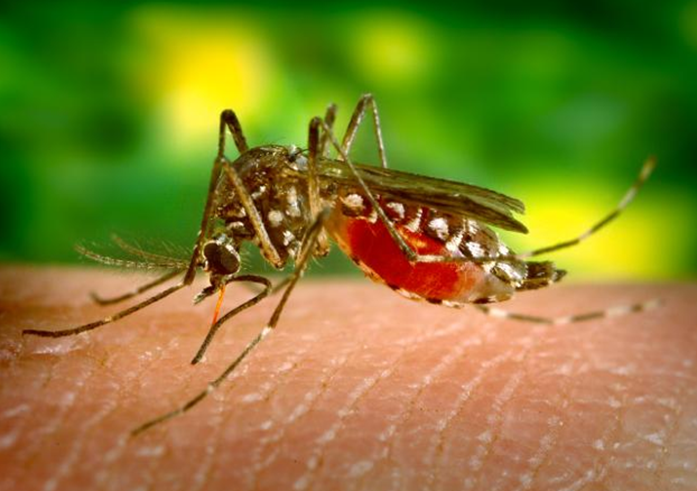By Addison Martin
The Iowa Department of Public Health on Oct. 25 announced the first death from West Nile Virus in Iowa since 2010.
While this woman was in northwestern Iowa, the number of recorded cases of West Nile virus has doubled in the state over the last year. The amount recorded in 2015 was 15 cases, while this year has seen 33.
Doug Beardsley, the director of the Johnson County Department of Health, said there was also a peak of cases in 2013.
“Why there was a peak? I don’t know,” Beardsley said. “Maybe it’s just the amount of virus that’s circulating, and birds are one of the vectors, so you’ve got to find a mosquito who has gotten it from a bird, it’s not transferred person to person. The peak some of it just could be that maybe there were more tests, more physicians testing for it.”
These peaks and valleys are normal, he said, and no one is exactly sure why the number is so high this year. While Beardsley said there are no coordinated anti-mosquito efforts as of now, there are some ways that residents of Iowa City can keep away the mosquitos that transmit this disease to humans is to diminish the amount of standing water around homes.
“The precautions are about wearing long sleeve shirts and using mosquito repellent, especially the type of mosquito that carries West Nile virus, it likes stagnant water, not the mosquitoes that come after a big flood, but you know if there’s gutters or buckets of water, clean those up,” he said.
Ryan Smith, an assistant professor of entomology at Iowa State University, said this spike is unusual but not altogether shocking or even dangerous to Iowa residents. His research and tracking of mosquitoes has been important evidence in the recording of this spike.
“We actually collect and test them that they have the virus as well, we have a lot more of mosquitoes that appear to have the virus here, so this appears to be an increase for whatever reason and there’s definitely that kind of trend happening,” Smith said.
Fortunately, the case of the death of the woman is very atypical, Smith said.
“The virus can actually infect the spinal column or nervous systems and, usually, how it kills people is it causes an inflammation of the nervous system, and that’s really in extreme cases,” he said. “I mean, it does happen, it doesn’t happen very often.”
Mary Costello, the disease intervention specialist of Davenport with the state Department of Public Health, confirmed this and said most people won’t even have symptoms, and there are no lasting effects of the disease.
“Eighty percent of people who get it will have no symptoms of all, it’s only a very small percent, less than 1 percent that will have the serious disease, most people will not even know,” she said.







